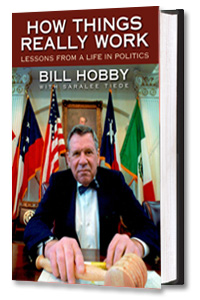For about 75 years, Shanghai was the leading port in Asia. When the Chinese Communists took the city over in 1949, they wanted to maintain Shanghai’s flourishing economy as a model of Communist prosperity.
Not surprisingly, they could not do so. The flight to Hong Kong of the big trading houses, shipping companies, and banks began. Shanghai is still the largest city in China, but the glory days are gone. Today, Hong Kong is the crown jewel of Asia–maybe the world’s most prosperous city. Shanghai, once the New York City of Asia is now the Atlantic City–down at the heels, a little seedy looking, remembering a more prosperous time.
In just three years, the Chinese Communists will take over Hong Kong, now a British Crown Colony. Will the result be the same? Will Hong Kong, like Shanghai, become one of China’s once-great cities? To be replaced by Singapore or Vancouver as a Pacific Rim financial capital?
Maybe not.
Like all viruses that come under attack, the virus of Chinese Communism has changed and developed. It is no longer the militantly collectivist virus it was in the days of Chou-en Lai. No longer does the Chinese government shackle the efforts of its citizens–at least not as much as 20 years ago. Today China vigorously seeks Western investment. China is an entrepreneurial nation.
Moreover, the transfer of sovereignty to China comes at a different moment in China’s history. China’s economy has been booming as the power of the central government has waned in recent years and the power of the provincial governments has increased.
The reign of the second Emperor of the Communist Dynasty, is coming to a close. An aging Deng Xiaophing is in his last years and shows some of the same signs that Mao Tze Dung, the first Communist Emperor, did at the end of his reign. Chairman Mao’s reign ended in chaos, confusion, corruption, and a collapsed economy. China’s geriatric leadership seems out of touch, much like an older person that just can’t quite hear what’s going on around him much anymore.
Deng’s regime is sliding down the same slippery slope. Corruption is rife. Repression is unabated.
In short, Shanghai was taken over by young, vigorous, foolish, true believers. Hong Kong, on the other hand, will not be absorbed by a country with vigorous leadership, but by a feebly led nation whose economy is by no means as robust as that of Hong Kong.
Whatever happens when Hong Kong comes under Chinese rule, China will be changed as much or more than Hong Kong. My speculation, of course, assumes that Deng Xiaoping’s current government, however inept, will not repeat the disasters of the end of the Mao era.
China is a bustling place. Buildings are being built, mostly with foreign money. Chinese investors are largely investing in Hong Kong and overseas. Richard Hornik wondered recently in the Asian Wall Street Journal why foreigners are so eager to invest in China when Chinese are not. He believes the Chinese economic bubble will burst because of corruption and ineptness.
Repression in China is probably worse than, if not so obvious as, it was at Tiananmen Square five years ago. Police eavesdropping on conversations in the square are now so obvious and obtrusive as to be ludicrous. A Chinese citizen who translates one of the “big letter” posters prepared by dissidents can be prosecuted for “revealing state secrets.”
Dissidents arrested before the fifth anniversary last June of the Tiananmen massacre have been told to expect long detentions. Hundreds of people were killed in those protests.
The Chinese government blacked out CNN coverage of the fifth anniversary of the massacre. CNN is seen in China almost exclusively by foreign travelers in their hotels.
The house rules of a hotel in Wuhan, China, prohibit “illegal activities such as prostitution, drug taking, gambling, speculation or profiteering.”
How ironic that Communist China is a bustling, booming, entrepreneurial nation while Russia, where Communism has been overthrown, is an economic disaster.

